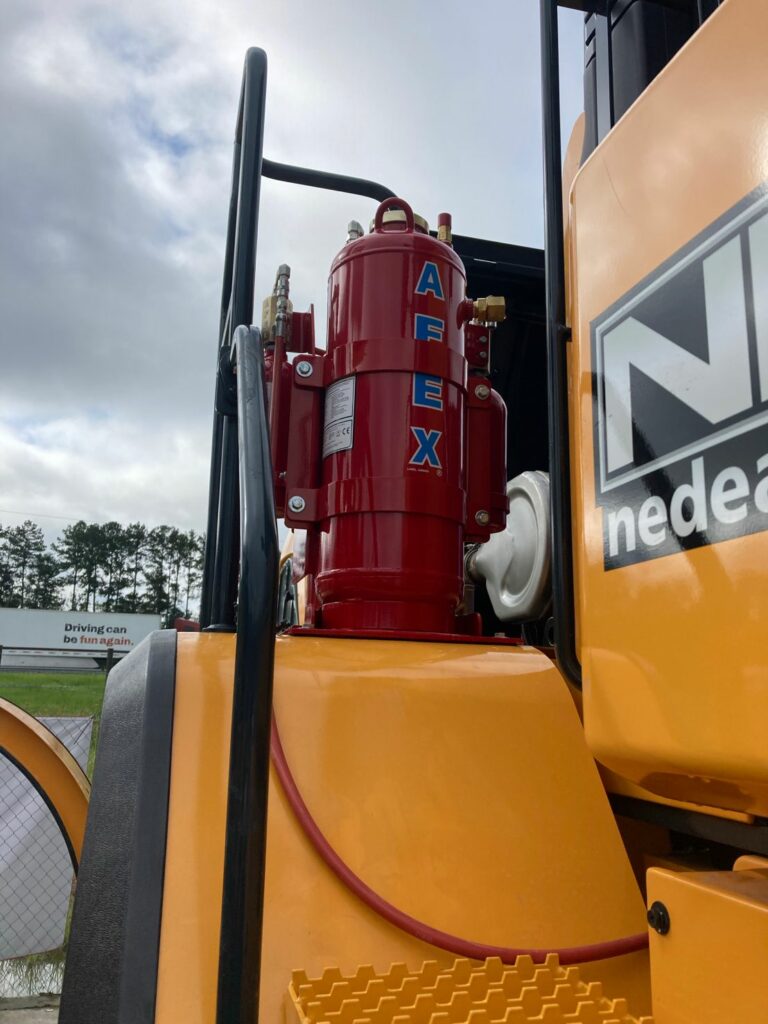Flo Components offering AFEX fire suppression systems
Flo Components is now offering vehicle fire suppression systems from AFEX in the Ontario and Manitoba markets.
The company says AFEX is the only fire suppression system designed to withstand the everyday abuse of heavy-duty mobile equipment applications.

“At a show we did in January, one of our customers was telling us that just over a year ago they had a live-bottom truck catch fire inside the service area,” explained Mike Deckert, vice-president, Flo Components.
“They lost not only the truck, but the entire service bay and the office connected to it. You don’t think about the dangers until it happens, and then the results are catastrophic. Vehicle fire suppression systems effectively detect threats ranging from engine to debris fires and protect your people and assets.”
“We’re excited to welcome Flo Components to AFEX’s esteemed group of distributor partners,” added Jeannette Miller, vice-president of sales and marketing at AFEX Fire Suppression Systems. “This partnership underscores our dedication to delivering top-tier suppression systems and unmatched support to the owners of heavy-duty mobile equipment. Flo Components aligns seamlessly with our values of excellence, reliability, and customer satisfaction, and so we trust that this collaboration will allow us to strengthen our presence in the Canadian market.”
Have your say
This is a moderated forum. Comments will no longer be published unless they are accompanied by a first and last name and a verifiable email address. (Today's Trucking will not publish or share the email address.) Profane language and content deemed to be libelous, racist, or threatening in nature will not be published under any circumstances.